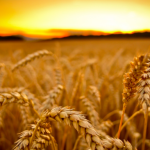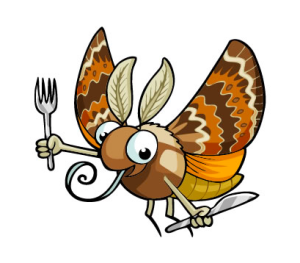A few weeks ago I came across a new term that I had not heard before. ‘Post-fact world’ were the words that caught my ear. ‘How could we possibly live in a world where facts are a thing of the past?’ I wondered. So I decided to investigate.
I came across an article by Francis Fukuyama, senior fellow at Stanford University and Director of the Center on Democracy, Development and the Rule of Law, the man who seems to have coined the term. In his article The Emergence of a Post-Fact World he says, ‘One of the more striking developments of 2016 was the emergence of a “post-fact” world, in which virtually all authoritative information sources are challenged by contrary facts of dubious quality and provenance. In a world without gatekeepers, there is no reason to think that good information will win out over bad.’
Aside from any issues that may arise from who these gatekeepers may be, many instances came to mind where we can see so called facts being challenged by, to borrow Ms Conway’s term, alternate facts. If you haven’t heard what one of Donald Trump’s Counsellors said in response to false facts being spread by the White House Press Secretary you can watch it here – skip to about 1:35s. When it comes to the media, who even decides what is reported as fact?
In recent times, Fake News has become a big issue. Even Primary School Children are warned about the traps of fake news. See this story from BtN 28/11/16.
And we all know President Trump’s feelings on Fake News (or at least on certain news organisations).
It seems to me, in a post-fact world, some people don’t even need alternative facts to counter facts, they just flat-out refuse to accept facts in the first place. Take Senator Malcolm Roberts and Professor Brian Cox’s encounter on Q&A. You can skip to 3:25s if you’re not interested in Prof. Cox explaining why climate change is driven by man.
And then, of course, there’s social media… Opinion and slander flying about as fact, even straight out lying – remember Elizabeth “Elle” Edmunds? The mother who raised money online to treat her non-existent cancer.
But where am I going with all of this?
Frank Crane once said ‘You may be deceived if you trust too much, but you will live in torment if you do not trust enough.’ So who or what can we trust in a post-fact world?
I would suggest that we can trust God’s Word.
God’s Word, the Bible, reveals the creator to us – ‘For his invisible attributes, namely, his eternal power and divine nature, have been clearly perceived, ever since the creation of the world, in the things that have been made. So they are without excuse.’ – Romans 1:20
In addition, the Bible comes directly from God – ‘All Scripture is breathed out by God and profitable for teaching, for reproof, for correction, and for training in righteousness’ 2 Timothy 3:16
And, if you have any doubt in your mind as to the authority or even existence of God, we have been urged to seek proof through the accuracy of the scriptures –
Set forth your case, says the Lord;
bring your proofs, says the King of Jacob.
Let them bring them, and tell us
what is to happen.
Tell us the former things, what they are,
that we may consider them,
that we may know their outcome;
or declare to us the things to come.
Tell us what is to come hereafter,
that we may know that you are gods;
do good, or do harm,
that we may be dismayed and terrified.
Behold, you are nothing,
and your work is less than nothing;
an abomination is he who chooses you.
If we search the scriptures we will find that the record of history is accurate and predictions of the future have been fulfilled.
In a world of post-fact, fake news and alternate facts, we can rely on the Bible.
I urge all to read the Bible diligently, because only by reading it can one form their own opinion and learn about not only the Truth, but also the Way and the Life for ‘Jesus said to him, “I am the way, and the truth, and the life. No one comes to the Father except through me.’ – John 14:6
 “Do not be deceived: God cannot be mocked. A man reaps what he sows. Whoever sows to please their flesh, from the flesh will reap destruction; whoever sows to please the Spirit, from the Spirit will reap eternal life. Let us not become weary in doing good, for at the proper time we will reap a harvest if we do not give up. Therefore, as we have opportunity, let us do good to all people, especially to those who belong to the family of believers.” (Galatians 6:7-10, NIV).
“Do not be deceived: God cannot be mocked. A man reaps what he sows. Whoever sows to please their flesh, from the flesh will reap destruction; whoever sows to please the Spirit, from the Spirit will reap eternal life. Let us not become weary in doing good, for at the proper time we will reap a harvest if we do not give up. Therefore, as we have opportunity, let us do good to all people, especially to those who belong to the family of believers.” (Galatians 6:7-10, NIV).
 A few weeks ago, one of Micah’s friends was having an outdoor birthday party. The forecast predicted rain for that day, which would have really put a damper on the party. So Micah and I prayed that it would not rain so that our friends would not be stressed or sad.
A few weeks ago, one of Micah’s friends was having an outdoor birthday party. The forecast predicted rain for that day, which would have really put a damper on the party. So Micah and I prayed that it would not rain so that our friends would not be stressed or sad.


